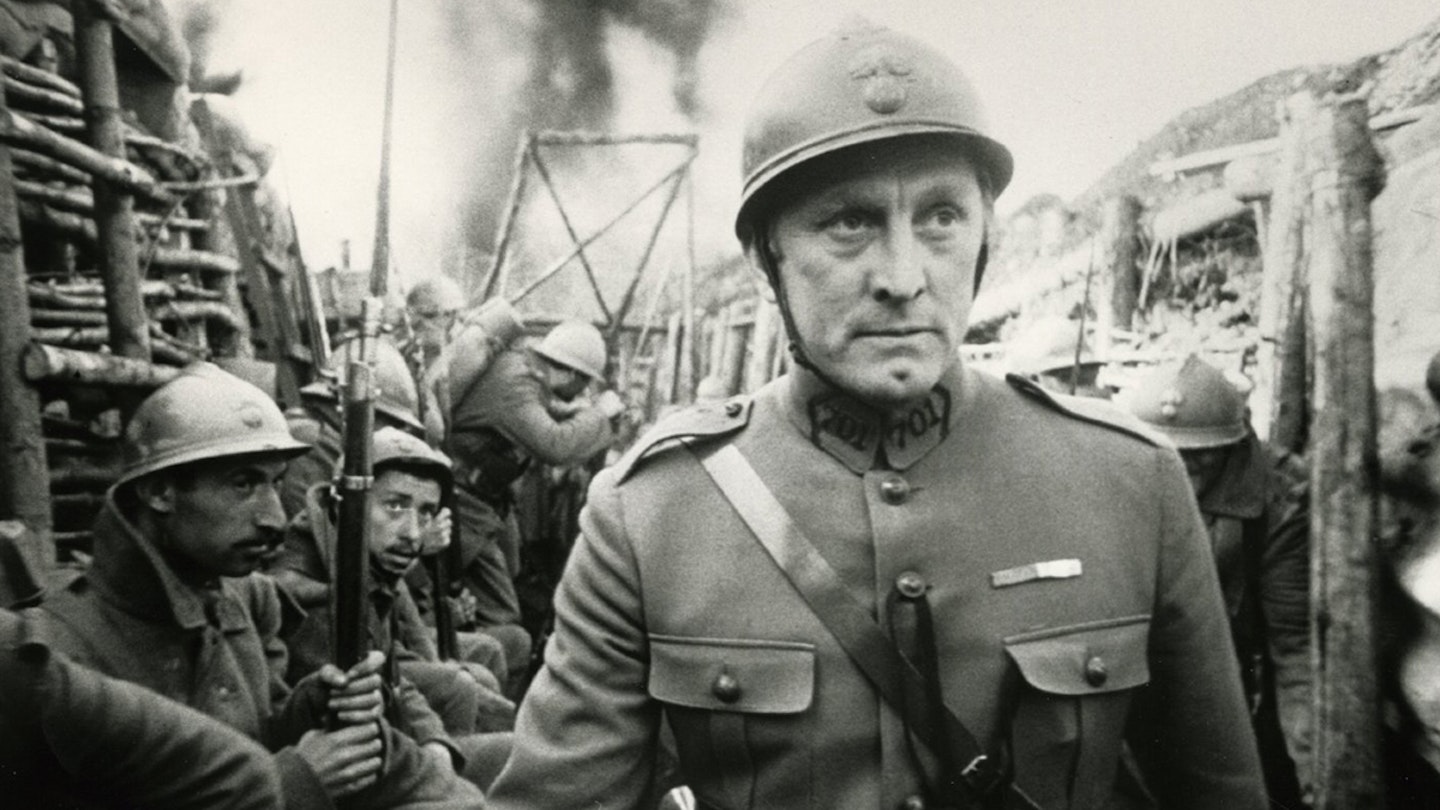On July 1, the Battle Of The Somme’s centenary will see a defining event in British history remembered across the country. Cinema has some invaluable tools to help do just that, as the Imperial War Museum’s new Real To Reel: A Century Of War Movies exhibition will illustrate next month. As background to those momentous events, Empire has assembled a list of the best movies from a war overrepresented with greats. Here’s 18 you need to see.
1. Paths Of Glory (1957)
Alongside All Quiet On The Western Front and La Grande Illusion, Stanley Kubrick’s movie is the greatest of all World War I films. After an ill-conceived attack on a heavily fortified German position called the Ant Hill, conniving French generals Adolphe Menjou and George Macready demand scapegoats to cover their own incompetence. The cruel show trial that follows sees three soldiers tried on trumped-up charges of cowardice, an injustice assailed by Kirk Douglas’s noble Colonel Dax, their advocate in the kangaroo court. The final scene{
2. King And Country (1964)
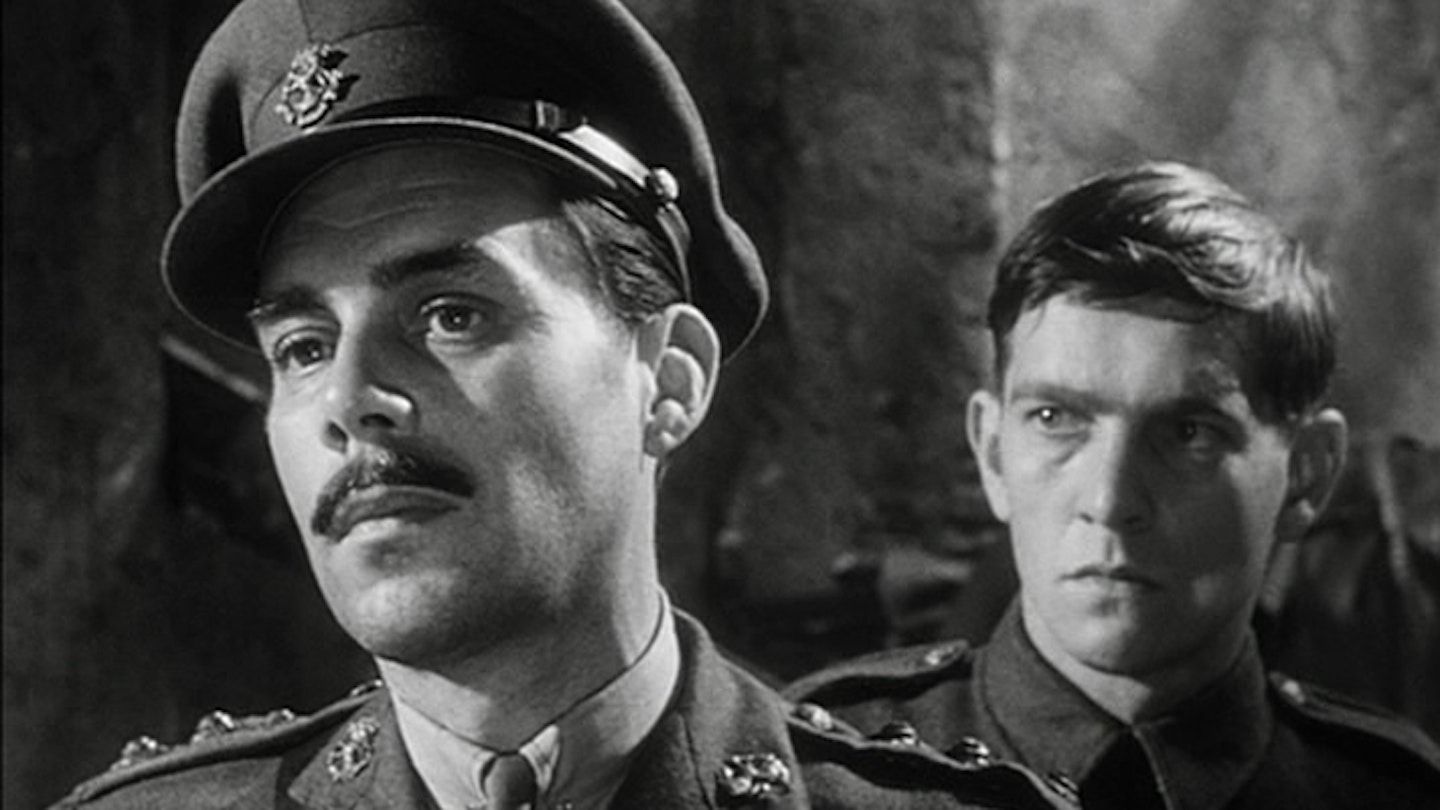
Joseph Losey followed up The Servant with a ferocious court martial drama that also starred Dirk Bogarde. Tom Courtenay, a hero of the British New Wave, plays a different sort of class outsider as a Tommy who is found walking home after a Passchendaele engagement leaves him as the sole survivor of his unit. Rather than a likely case of shellshock, the powers-that-be try him by court martial like he’s the Flanders Pigeon Murderer. Courtenay is heartbreaking as a broken man crushed under the wheels of a callous system.
3. All Quiet On The Western Front (1930)
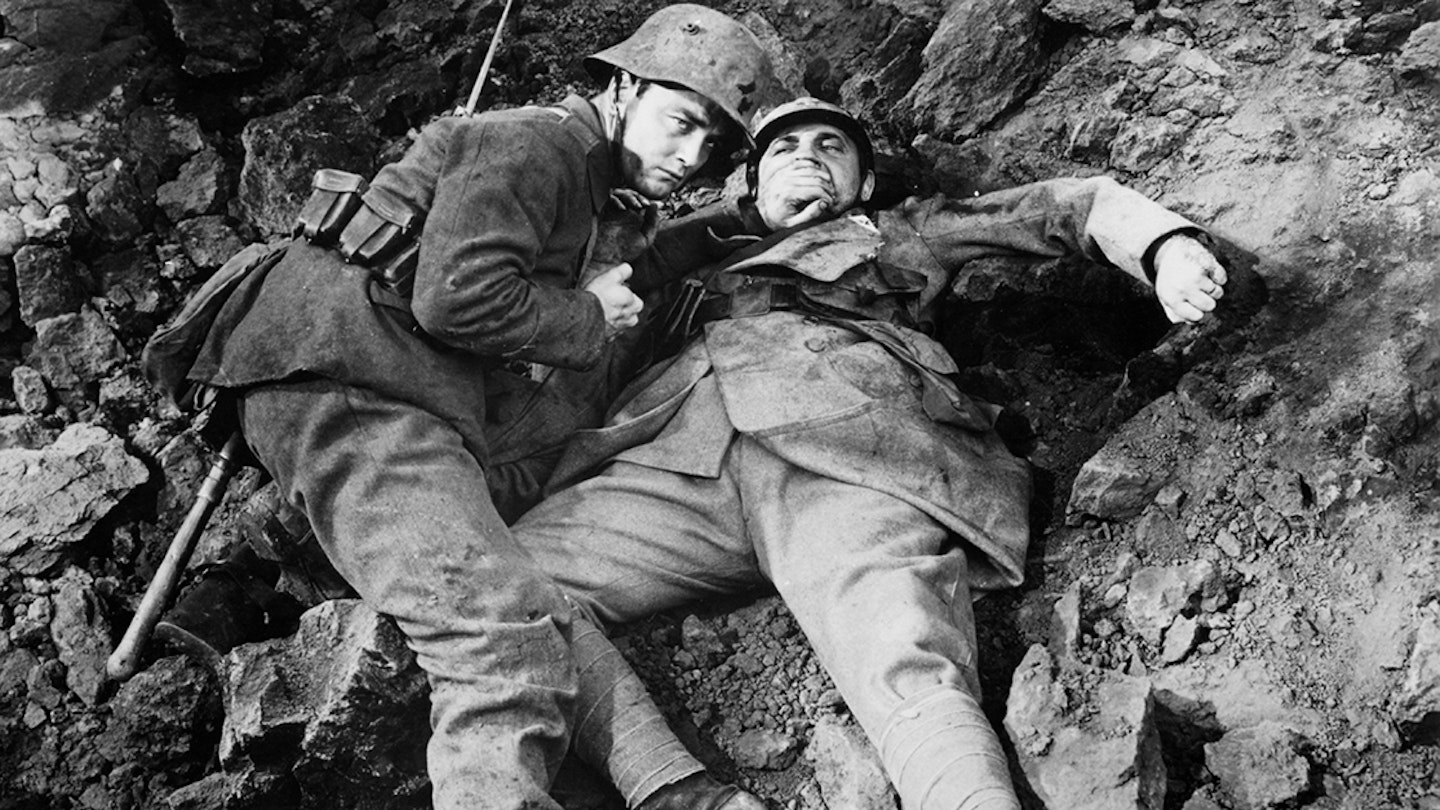
Famously, Hitler hated Lewis Milestone’s World War I classic, despite (or, perhaps, because of) its German perspective on the conflict. In fact, the Nazis hated its anti-war message so much that they released Nazi rats into cinemas, before eventually banning it altogether. Milestone shows the war through the eyes of young Paul Bäumer (Lew Ayres), who survives long enough to see it snuff out a generation around him. The director’s technical wizardry still staggers, with virtuoso tracking shots, whistling whizz-bangs and thousands of extras lending realism to its battles. But it’s in the moments of quiet that he captures the confused logic of the war.
4. The Battle Of The Somme (1916)
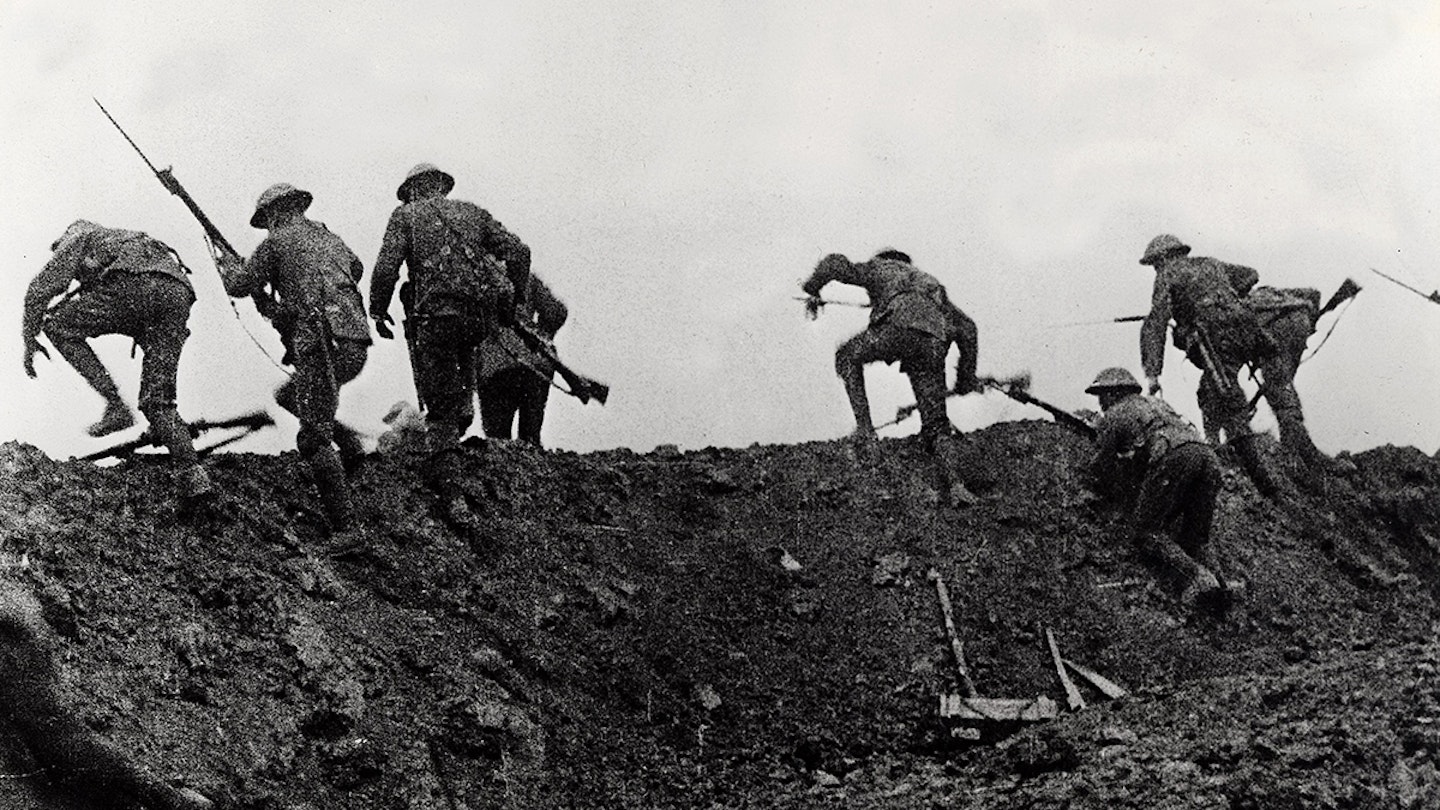
Part of The Imperial War Museum’s new exhibition is a study of this groundbreaking documentary set over the broken ground of the Somme battlefield. For anxious audiences back in Blighty, its release in August 1916 was the equivalent of a Sky News bulletin filling them in with a (heavily censored and very sanitised) account of the events of early July. Anyone with an aversion to cliffhanger endings was fresh out of luck: the battle would go on for a further four months.
5. La Grande Illusion (1937)
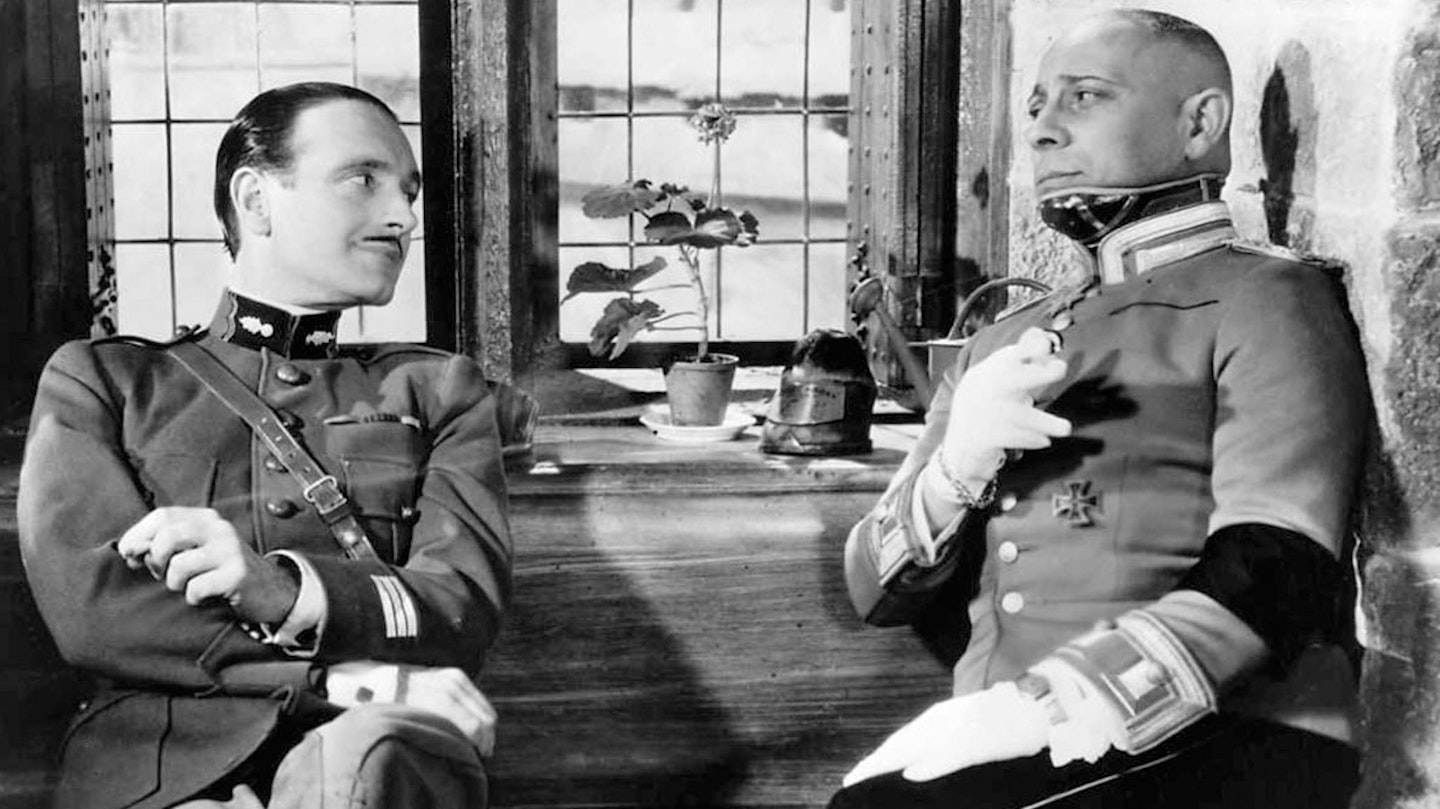
Jean Renoir's masterpiece proves that old Samuel Johnson adage about patriotism being the last refuge of the scoundrel. The director, a veteran of the war, had some things to say about the futility of fighting to preserve a dying social order, or men killing out of misplaced idealism. He lays bare the war's huge social impact of the war, with a famous ending that sees aristocrats Erich von Stroheim and Pierre Fresnay accepting that their time has passed, while the working class Jean Gabin and Jewish Marcel Dalio escape across the Alps to an equally uncertain future. “Frontiers are made by men,” points out Dalio, “nature doesn't give a damn”.
6. The Dawn Patrol (1938)
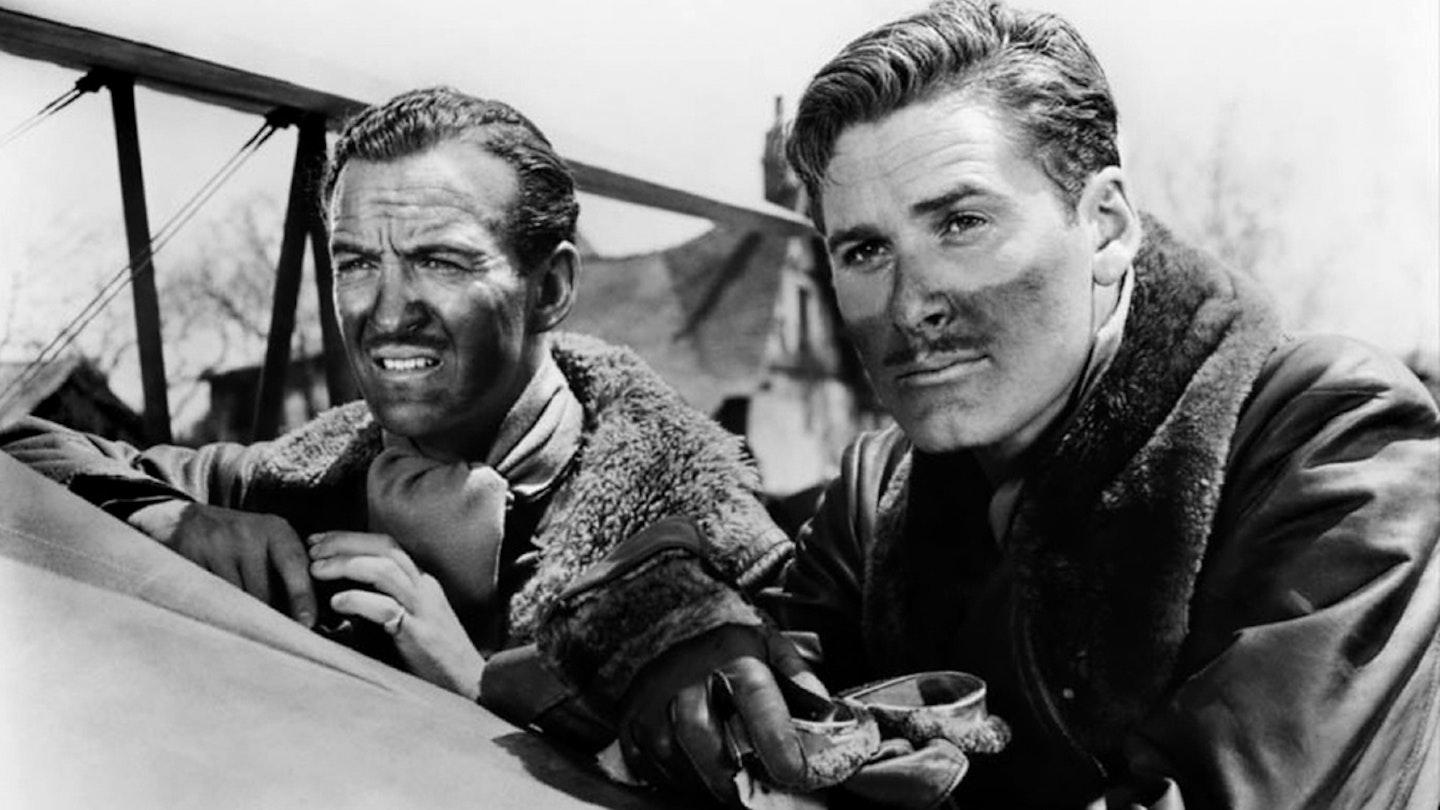
Of all the films about the Royal Flying Corps – Blackadder’s 20 Minuters – this one has the most moustaches. Fittingly, they belong to the faces of Errol Flynn and David Niven, a two-man debon-air force that’s a match for anything the Hun can throw at them. They play a pair of RFC pilots whose devil-may-care attitude hardens as their squadron is gradually decimated. With booze-soaked fliers and every mission an open invitation to a fiery death, it was strong medicine for audiences on the verge of another war.
7. Sergeant York (1941)

Like a black-and-white Expendables, Howard Hawks’ war flick was a straight-up tale of heroism served to a nation that needed rousing for another war. Unsurprisingly, considering the film’s propaganda role, the Germans don’t come out of it too well – they’re basically unusually sneaky cannon fodder for Gary Cooper’s doughboy – but the essence is of a good man doing his duty… and everyone else’s too.
8. Wooden Crosses (1932)
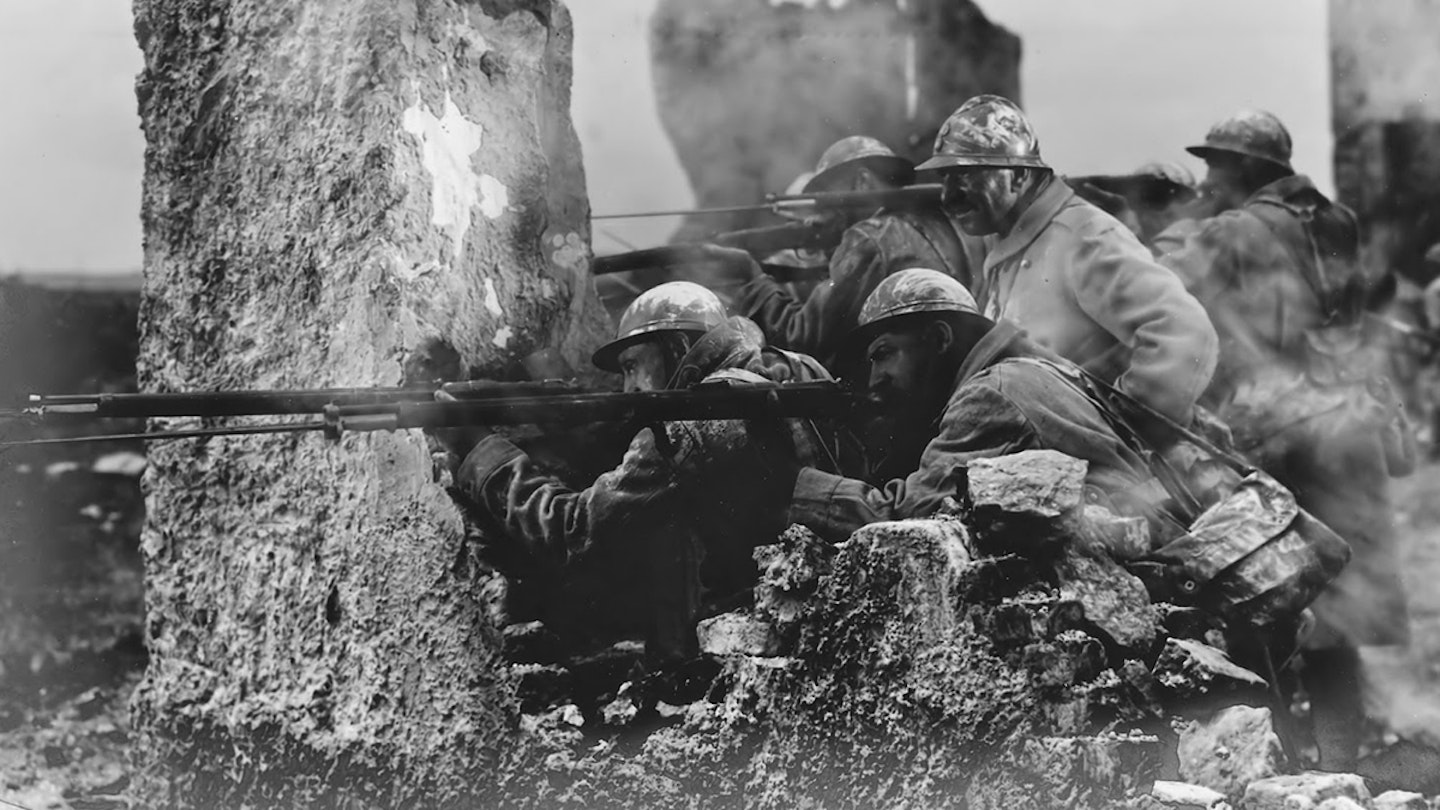
France’s answer to All Quiet On The Western Front is less misty-eyed in its portrayal of men in the front line than the Hollywood epic. There’s not much room for sentiment in its gnarled bunch of Gallic foot-soldiers – both Joie and De Vivre have long since left town – as they attempt to make it to the end of 1915 in the same number of pieces as they entered it. The battle sequences are both stunning and futile and there’s a macabre subplot involving a dugout the men are forced to occupy even while German tunnellers surround it with explosives.
9. The Four Horsemen Of The Apocalypse (1921)
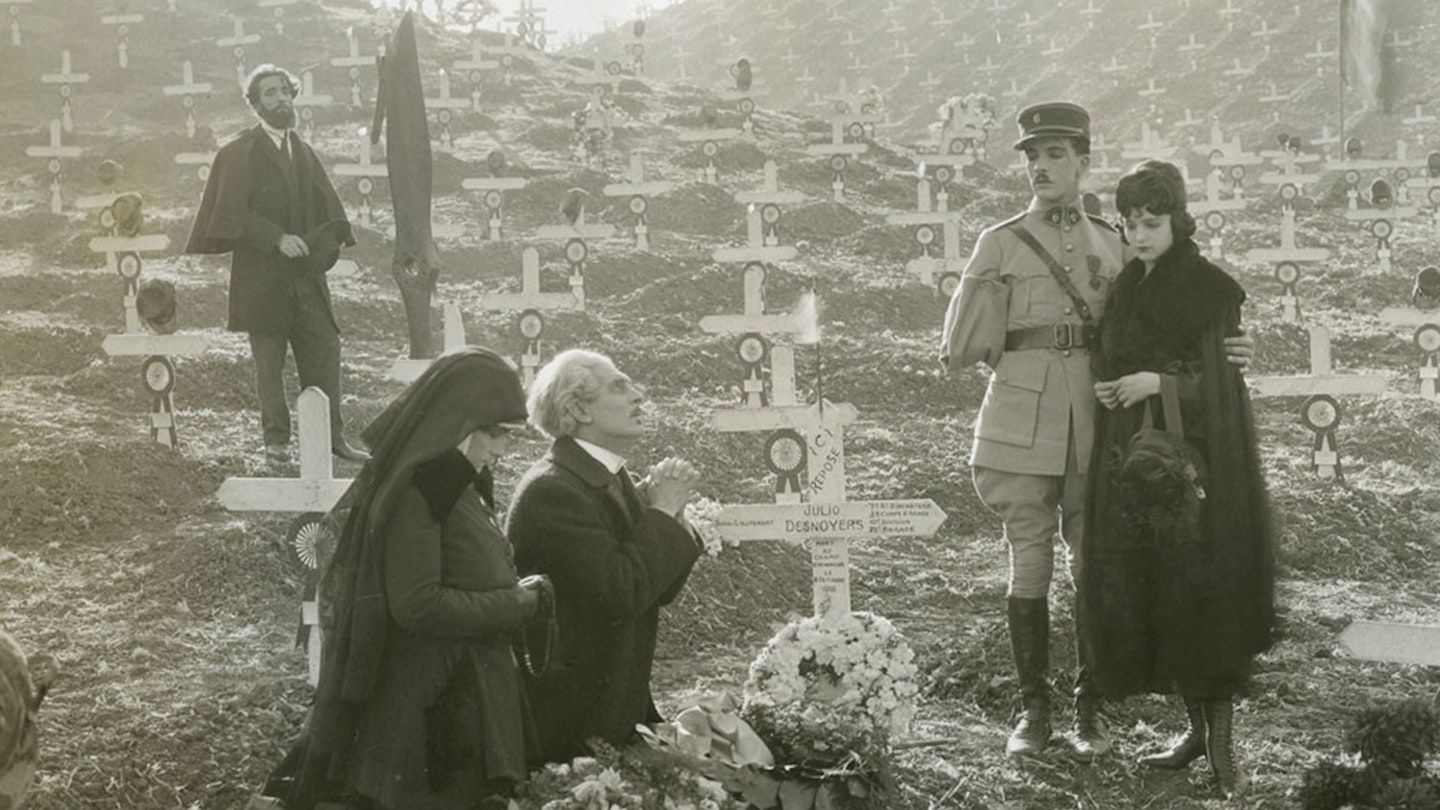
The guns had only been quiet for two years when this classic Great War flick wrapped. Rudolph Valentino (or, if you’re not into the whole brevity thing, Rodolfo Alfonso Raffaello Pierre Filibert Guglielmi di Valentina) starred as an unusually dashing French poilu who fights bravely in the face of the apocalypse, while nursing a tender romantic subplot to his heart. Its battle scenes are still impressive. Contains as much noise and fury as could be squeezed into a silent movie, as well as an fairly stereotypical portrayal of the dreaded Hun.
10. The Big Parade (1925)
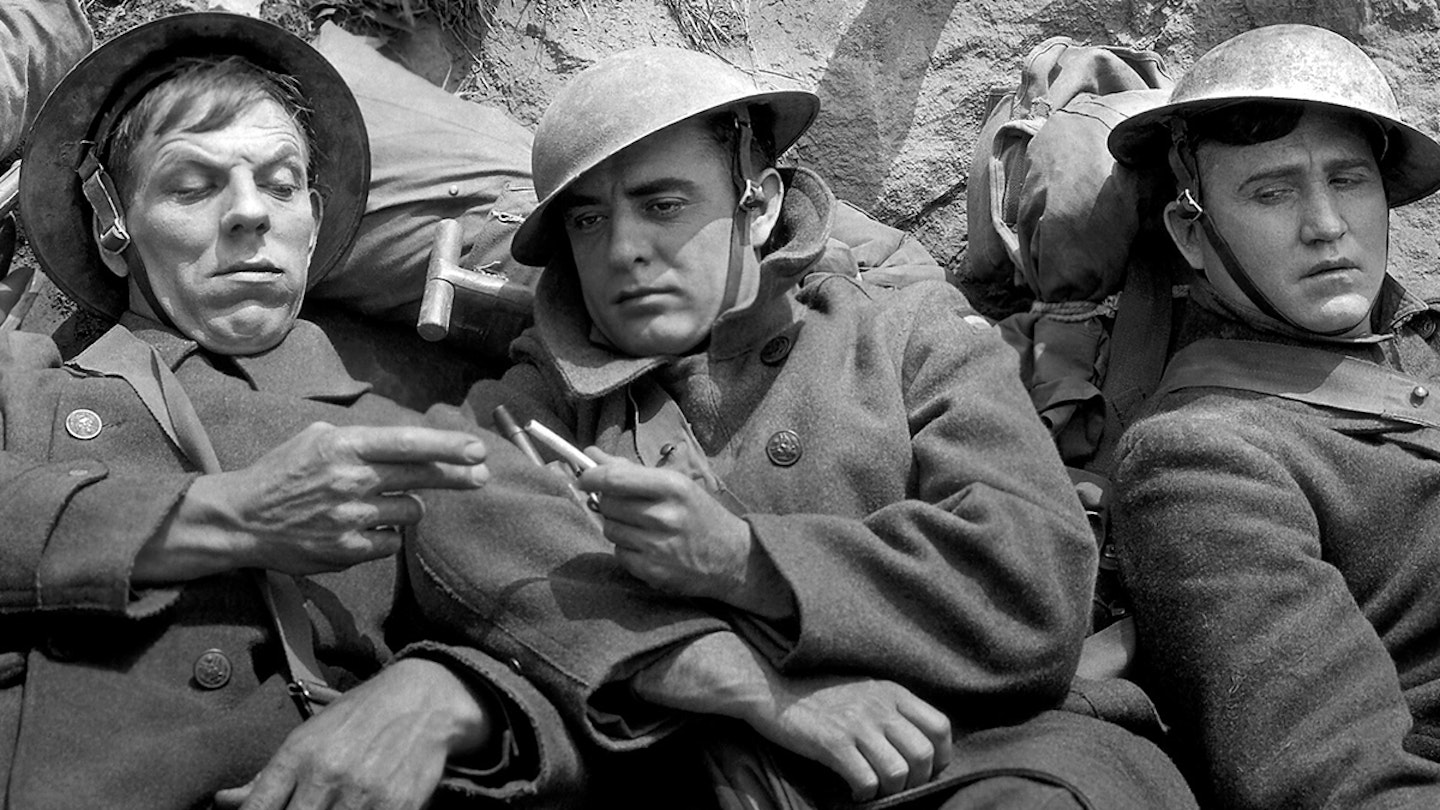
King Vidor brought World War I back home to America on a typically epic scale. Like Michael Cimino and The Deer Hunter 50 years later, his interest lay in showing war’s grievous impact back home, but he threw in some thunderous battles, too, to show what doughboys had faced at the front. Vidor’s silent spectacular was one of the highest grossing film of its time and earned plaudits from veterans for its depiction of the Battle Of Belleau Wood in 1918.
11. Lawrence Of Arabia (1962)

David Lean’s great desert epic doesn't need much introduction, but the wartime history it depicts might. Those mahoosive camel charges and wrecked troop trains, so breathtaking on the big screen, don’t always tally with events (the Bedouin attack on Aqaba in 1917 was, in reality, a much smaller affair), but Lean’s epic dragged the much-neglected Arab Revolt and Middle East campaign into the popular consciousness. It’s long, sure, but its inner complexities justify ever moment of its runtime.
12. Oh! What A Lovely War (1969)
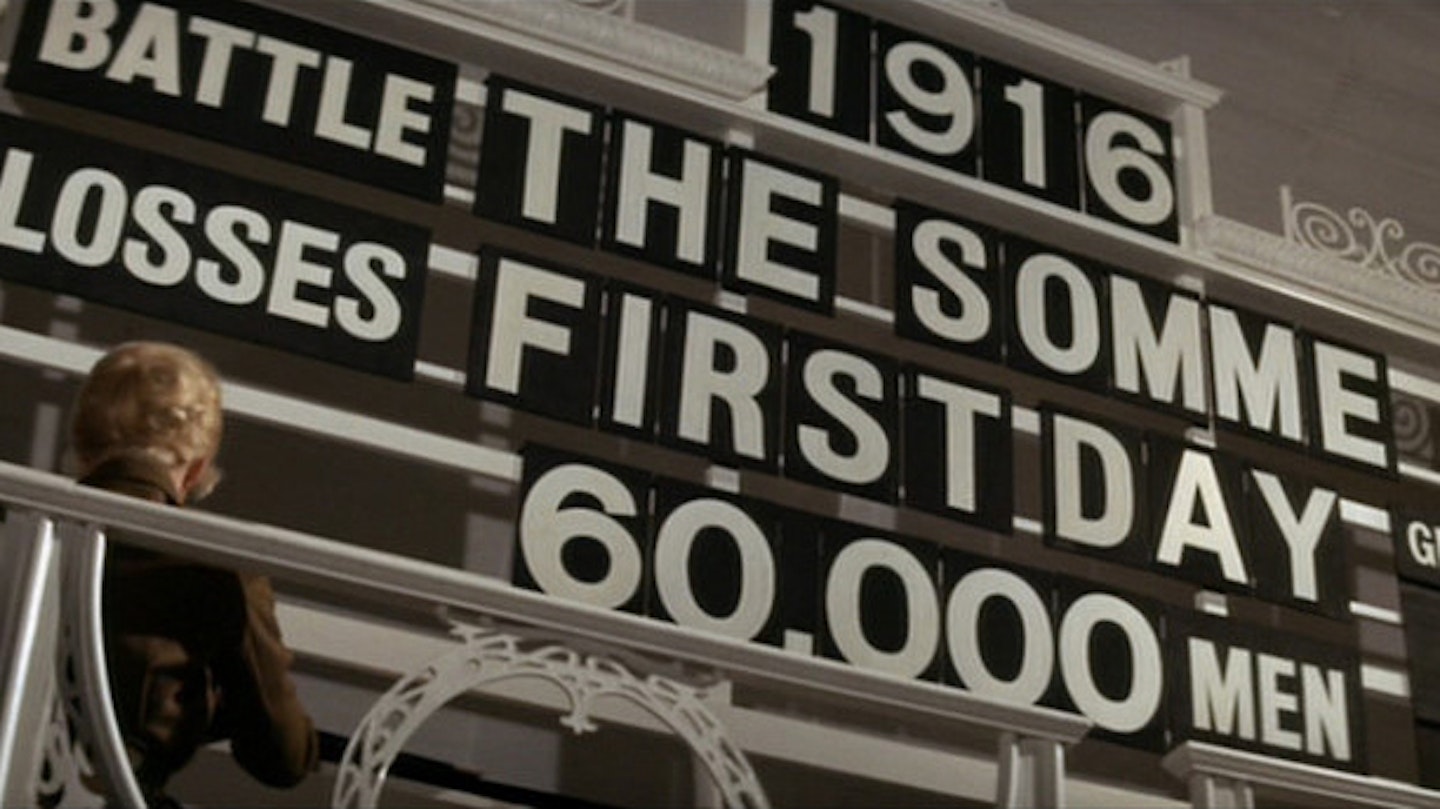
Richard Attenborough’s first directorial feature is an enduring satire of the war. A musical, it uses the songs of the time to chart the conflict from origins to armistice, ending with a single shoot that lingers long in the mind - a sea of British graves stretching endlessly across a verdant landscape. The ensemble cast was a Who’s Who of British thesps (Bogarde! Gielgud! Olivier! Redgrave! Another Redgrave!), but it’s John Mills’s portrayal of General Haig, playing leapfrog as the casualty figures pour in, that best captures the madness. Not subtle, but certainly powerful.
13. Aces High (1976)
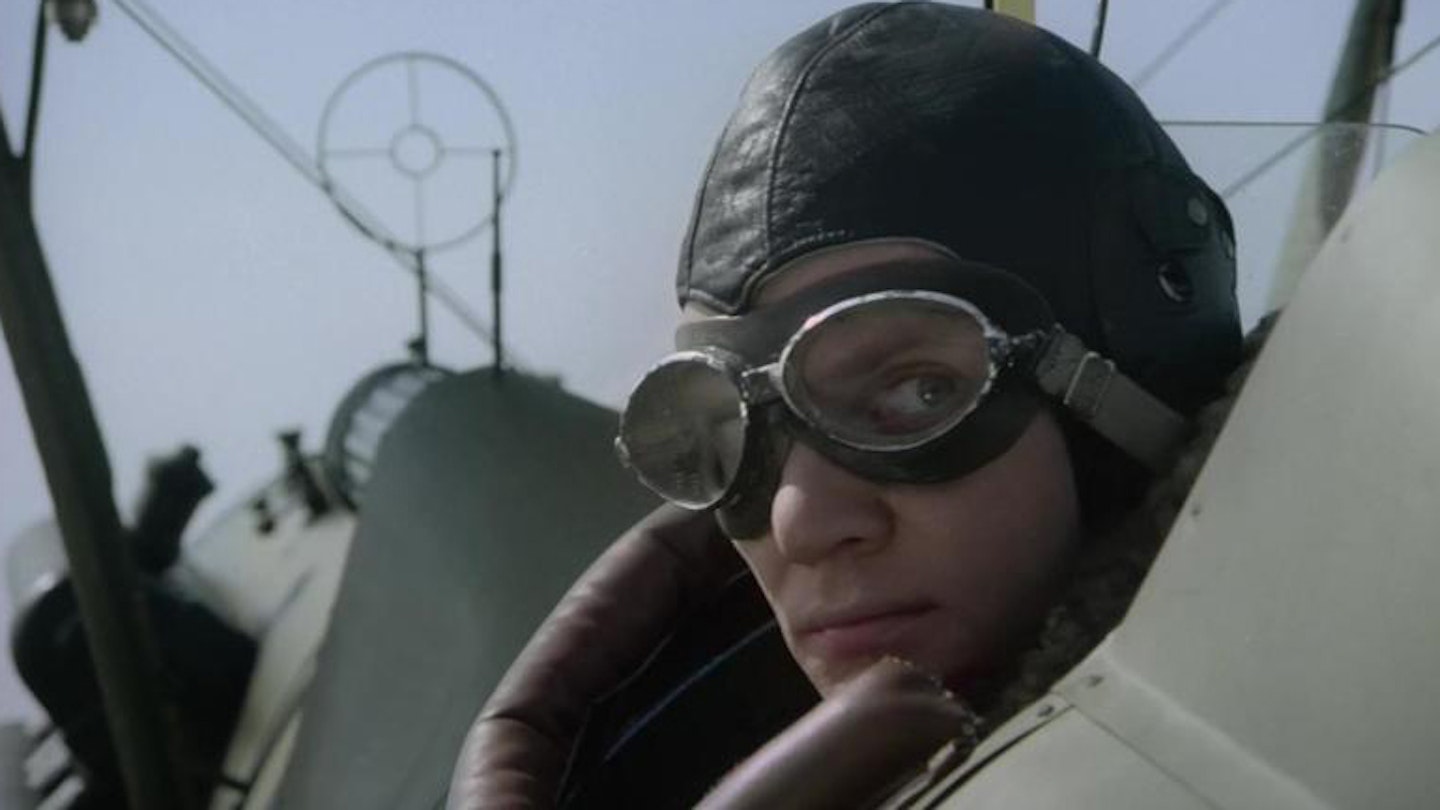
Basically R.C. Sherriff’s play, Journey’s End, fitted with twin machine-guns and a propeller, this bleak British war film is set in the air but soaked in the fatalism of the trenches. Malcolm McDowell is the hard-drinking Stanhope figure, trying to hold his nerve, keep his squadron together and live up to the hero worship of newbie pilot Peter Frith. If you’re familiar with the play, you’ll know that things don’t end well for his RFC pilots, including nervy Simon Ward and old salt Christopher Plummer, as a series of spectacular dogfights does for them all. In contrast to propaganda flicks like Sergeant York, Aces High takes notions of heroism and drops a bomb on them.
14. Gallipoli (1981)
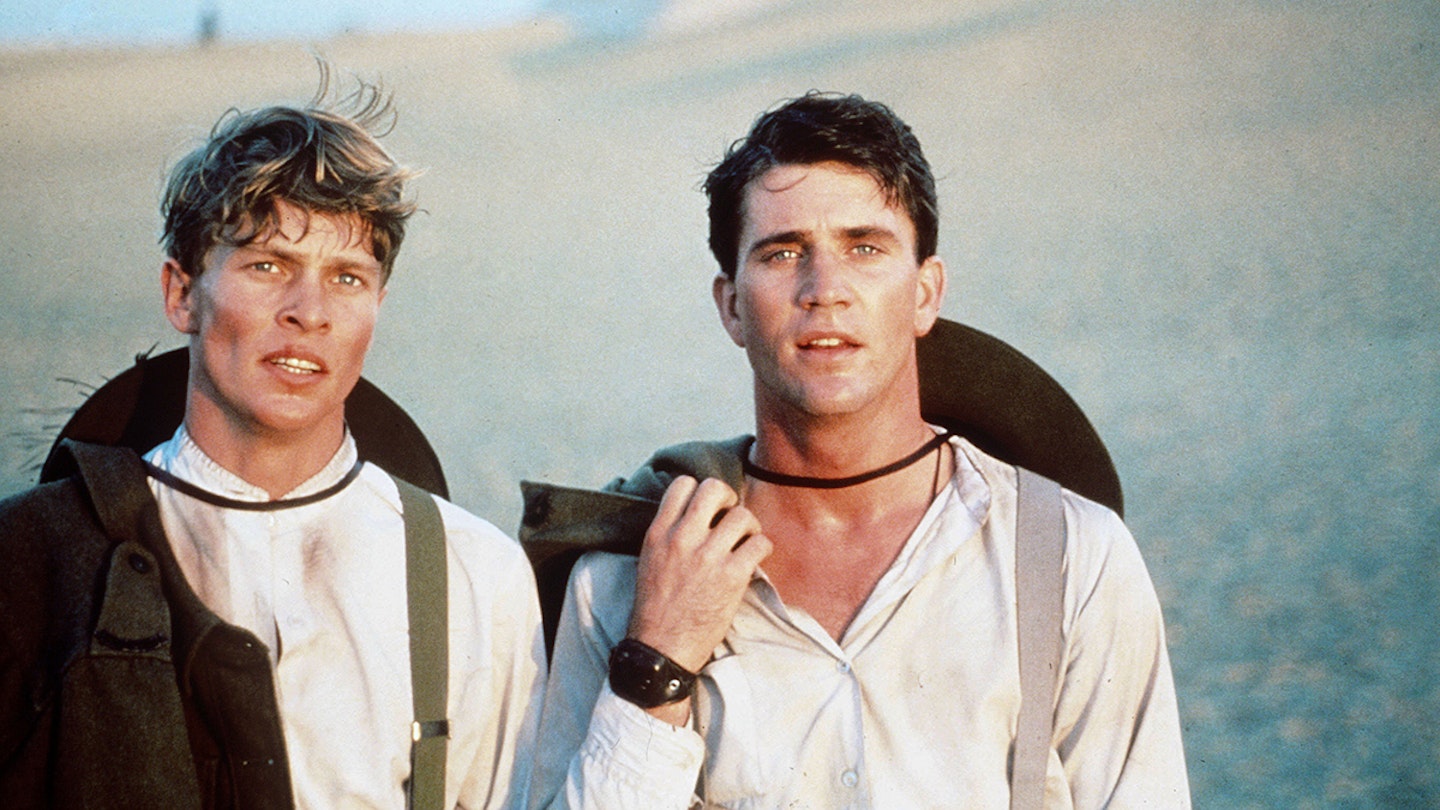
The film that launched Peter Weir and Mel Gibson onto the international stage, Gallipoli shows the war from Australia’s point of view, culminating in the futile, bloody Battle Of The Nek against the Turks. Weir freights it with political meaning – the Anzacs are sent over the top while the Brits sip tea on the beach – as well as raw emotion. It’s become a key statement of Australia’s national identity, as well as a seminal anti-war film.
15. Regeneration (1997)
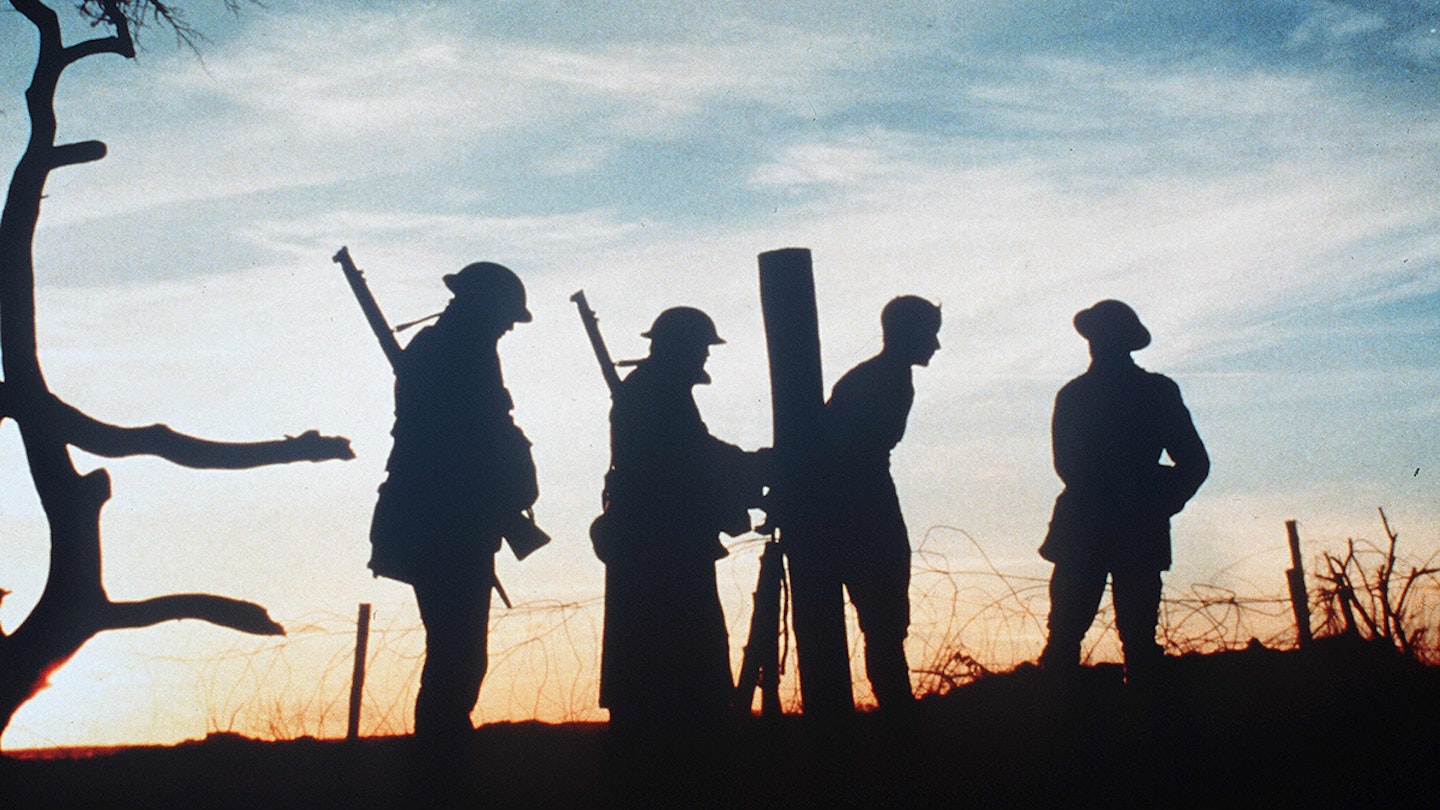
Both elegiac and gut-wrenching, Regeneration should have led on to bigger things for director Gillies MacKinnon. Sadly this moving adaption of Pat Barker’s Booker-winning trilogy never found an audience. More’s the pity: from its opening, an lingering overhead shot that impassively absorbs the full horror of no-man’s land, to subtle character studies of war poets Siegfried Sassoon (James Wilby) and Wilfred Owen (Stuart Bunce), it’s a brilliant exploration of trench warfare’s brutal impact on the psyche. As compassionate neurologist William Rivers, Jonathan Pryce is a far cry from the High Sparrow.
16. The Trench (1999)
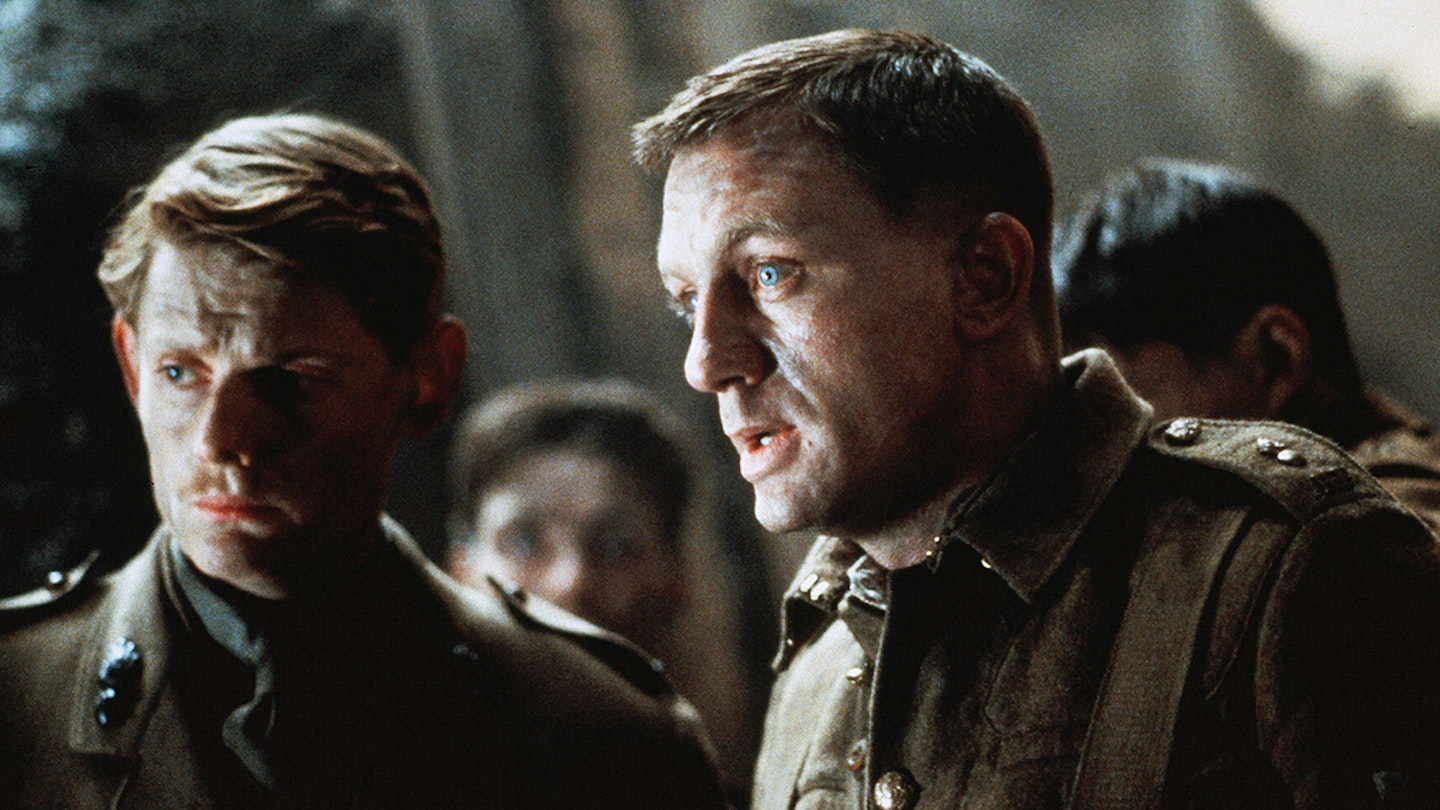
Novelist William Boyd’s first film is set in the nervous lull before the first day of the Somme. It’s an unusual perspective on the bloodiest day in British history, showing the huge tension soldiers endured in the prelude to the big push and examining the nature of comradeship in the trenches. The platoon of stock characters, Cillian Murphy, Daniel Craig and Ben Whishaw among them, owes something to Sherriff’s Journey’s End, and Peter Weir’s Gallipoli has its freeze-frame ending pillaged, but it’s an earnest and ultimately heartbreaking microcosm of Britain’s costliest battle.
17. A Very Long Engagement (2004)
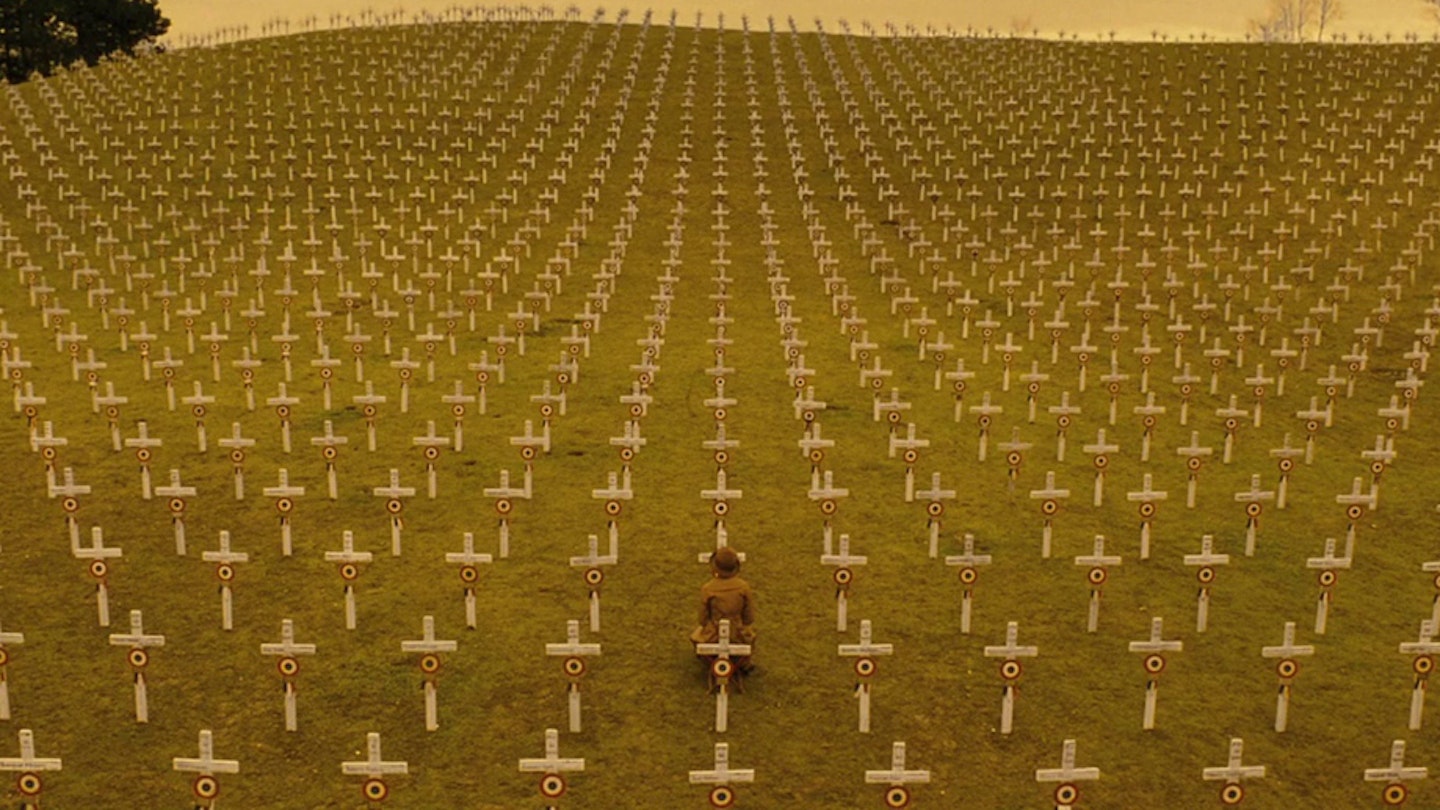
A love story, mystery and war film all wrapped Jean-Pierre Jeunet’s magical-realist touch, A Very Long Engagement harks back to the behind-the-lines love stories of Big Parade, Wings and Four Horsemen Of The Apocalypse, as well as the outrage of Paths Of Glory. There’s the mindless folly of frontal attacks, shellshock, exploding airships, artillery fire and barbed wire as far as the eye can see, with Jeunet depicting the blithe disregard for casualties that became a feature of the war. Credit to production designer Aline Bonetto whose recreation of the Somme battlefields (and 1920s France) earned her an Oscar nomination.
18. The African Queen (1951)

John Huston’s adaptation of C. S. Forester’s novel is more romance than war flick, but it does dip a toe into the croc-infested waters of the German East Africa campaign. The Congo setting is a world away from the morass of the Western Front, with mozzies for mud and rapids rather than artillery to worry about, but the Germans, village-burning bounders to a man, are every bit as detestable as the World War II Nazis Bogart faced in Casablanca. Bogey and Katharine Hepburn’s impromptu mission to sink a German gunboat was a construct of the story, but it was inspired by the real Battle for Lake Tanganyika in 1915.
The Imperial War Museum’s Real To Reel: A Century Of War Movies runs from July 1 to January 8, 2017.
